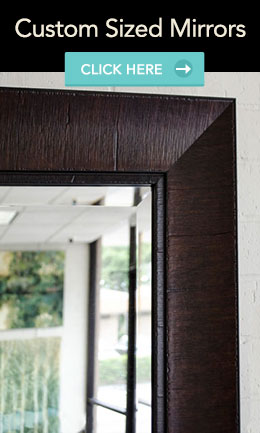
Boosting Employee Productivity with Mirrors: Transforming Workspaces for Efficiency
When designing a workspace, the focus is often on functionality, aesthetics, and comfort, but what about productivity? Research shows that a well-designed office environment can significantly impact employee performance. One underrated design element that can help boost productivity is the use of mirrors. Mirrors can enhance a workspace by making it more open, brighter, and psychologically stimulating. Let’s explore how mirrors can enhance workplace efficiency.
How Do Mirrors Affect Space and Mood?
Mirrors have a powerful effect on space perception. Strategically placing mirrors in an office creates the illusion of more space, which helps employees feel less confined. In smaller offices, mirrors reflect light and make the environment feel more open and comfortable, improving overall mood and job satisfaction. A more spacious and light-filled environment can reduce stress and lead to higher efficiency.
A study by the University of Oxford found that happier employees are 13% more productive, underscoring the importance of a positive workspace.
The Role of Lighting: Natural Light and Energy
Natural light is key to boosting workplace productivity. Mirrors reflect available light, whether natural or artificial, and help distribute it more evenly throughout the office. This is particularly beneficial in spaces with limited windows or access to daylight. Proper lighting has been shown to reduce eye strain, improve focus, and elevate mood—all critical factors in a productive office setting.
By positioning framed mirrors across from windows or light sources, you can maximize light reflection. This not only brightens the workspace but also lowers the need for artificial lighting, potentially reducing energy costs. Brighter spaces are linked to increased alertness, reduced fatigue, and improved cognitive performance.
Custom Mirrors: Tailoring to Office Needs
Custom-sized mirrors can be tailored to the unique needs of any office. These mirrors can serve as decorative pieces while providing functional benefits like making the office feel larger and reflecting light. Large mirrors placed strategically in hallways, meeting rooms, or communal areas create a sense of openness and encourage collaboration by breaking the monotony of walls.
For interior designers, choosing the right frame for custom mirrors adds a layer of sophistication to the workspace. Sleek, minimalist frames for square mirrors can complement modern office designs, while ornate frames can elevate traditional or creative spaces. The versatility of custom mirrors makes them a practical design tool for any office environment.
Boosting Focus and Reducing Fatigue
Mirrors can also enhance employee focus. Reflective surfaces promote self-awareness, which has been linked to higher levels of focus and accountability in work settings. When employees are aware of their surroundings and how they appear to others, they are more likely to remain engaged and avoid distractions.
Also, mirrors can help reduce visual monotony. Repetitive environments with no visual interest can lead to mental fatigue, but mirrors break up the space by adding depth and dimension. This subtle change in the environment can help re-energize employees, keeping them more alert and productive throughout the day.
Mirrors can transform a workspace by enhancing light, creating the illusion of more space, and boosting mood and focus. These changes can contribute to a more productive, efficient workplace, aligning with the broader goals of employee satisfaction and performance. For interior designers and remodeling professionals, mirrors represent a functional yet stylish tool that offers practical benefits for improving workplace efficiency.


